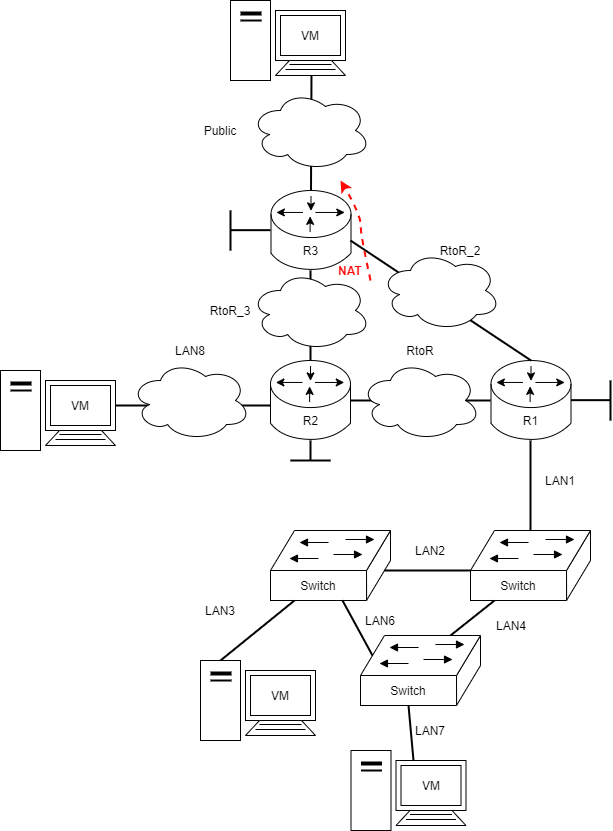E10 Configuring NAT
 Back to the Material: IPv4 Network Address Translation
Back to the Material: IPv4 Network Address Translation
Video: Instructions for E10
Topology
This exercise follows E09, thus uses its working configuration.
Preparing the topology
If everything was fine earlier, there is nothing to do/change.
You might want to remove the firewall configuration (from E09), so it is allowed
Firewall and NAT might have problems, as they have an ... interesting ... relationship :)
Configuring Many-to-1 NAT
Configure the Many-to-1 NAT on R3 as shown in the topology picture.
Warning
There are multiple subnets of private IPv4 addresses coming to your NAT router!
Take them all into account in your configuration!
Investigating traffic
Verify the functionality of the NAT through show commands
- Place an ongoing
pingfrom the private IPv4 subnets to the public IPv4 subnet- preferrably to a lubuntu workstation in the public subnet
- Actively use the
showcommands to verify the working of NAT for evidence of Network Address Translation on R3
Document the results into the repository.
Verify the functionality of the NAT through wireshark
- Place an ongoing
pingfrom the private IPv4 subnets to the public IPv4 subnet- preferrably to a lubuntu workstation in the public subnet
- Use a
Lubuntu Wiresharkvirtual machine to capture traffic on both sides of the Network Address Translation- You can wireshark the cables separately, but remember to save the capture and name it accordingly
Document the results into the repository.
Back to the Schedule?
License
This course and its materials are written by Karo Saharinen and licenced by Attribution-NonCommercial-NoDerivatives 4.0 International (CC BY-NC-ND 4.0) license.


